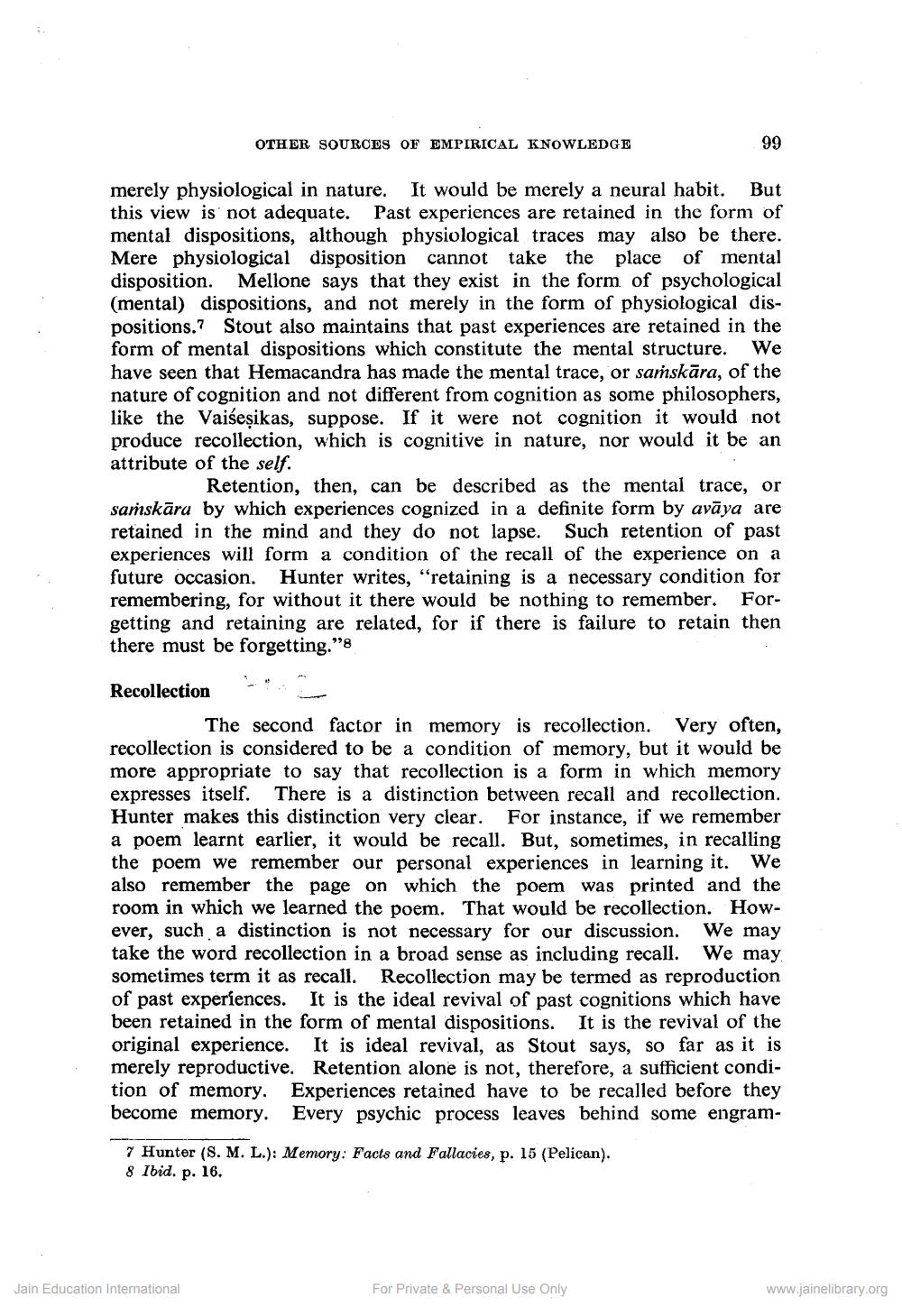________________
OTHER SOURCES OF EMPIRICAL KNOWLEDGE
99
merely physiological in nature. It would be merely a neural habit. But this view is not adequate. Past experiences are retained in the form of mental dispositions, although physiological traces may also be there. Mere physiological disposition cannot take the place of mental disposition. Mellone says that they exist in the form of psychological (mental) dispositions, and not merely in the form of physiological dispositions. Stout also maintains that past experiences are retained in the form of mental dispositions which constitute the mental structure. We have seen that Hemacandra has made the mental trace, or saṁskāra, of the nature of cognition and not different from cognition as some philosophers, like the Vaišeşikas, suppose. If it were not cognition it would not produce recollection, which is cognitive in nature, nor would it be an attribute of the self.
Retention, then, can be described as the mental trace, or saṁskāra by which experiences cognized in a definite form by avāya are retained in the mind and they do not lapse. Such retention of past experiences will form a condition of the recall of the experience on a future occasion. Hunter writes, "retaining is a necessary condition for remembering, for without it there would be nothing to remember. Forgetting and retaining are related, for if there is failure to retain then there must be forgetting."8
Recollection -
The second factor in memory is recollection. Very often, recollection is considered to be a condition of memory, but it would be more appropriate to say that recollection is a form in which memory expresses itself. There is a distinction between recall and recollection. Hunter makes this distinction very clear. For instance, if we remember a poem learnt earlier, it would be recall. But, sometimes, in recalling the poem we remember our personal experiences in learning it. We also remember the page on which the poem was printed and the room in which we learned the poem. That would be recollection. However, such a distinction is not necessary for our discussion. We may take the word recollection in a broad sense as including recall. We may sometimes term it as recall. Recollection may be termed as reproduction of past experiences. It is the ideal revival of past cognitions which have been retained in the form of mental dispositions. It is the revival of the original experience. It is ideal revival, as Stout says, so far as it is merely reproductive. Retention alone is not, therefore, a sufficient condition of memory. Experiences retained have to be recalled before they become memory. Every psychic process leaves behind some engram
7 Hunter (S. M. L.): Memory: Facts and Fallacies, p. 15 (Pelican). 8 Ibid. p. 16.
Jain Education International
For Private & Personal Use Only
www.jainelibrary.org




